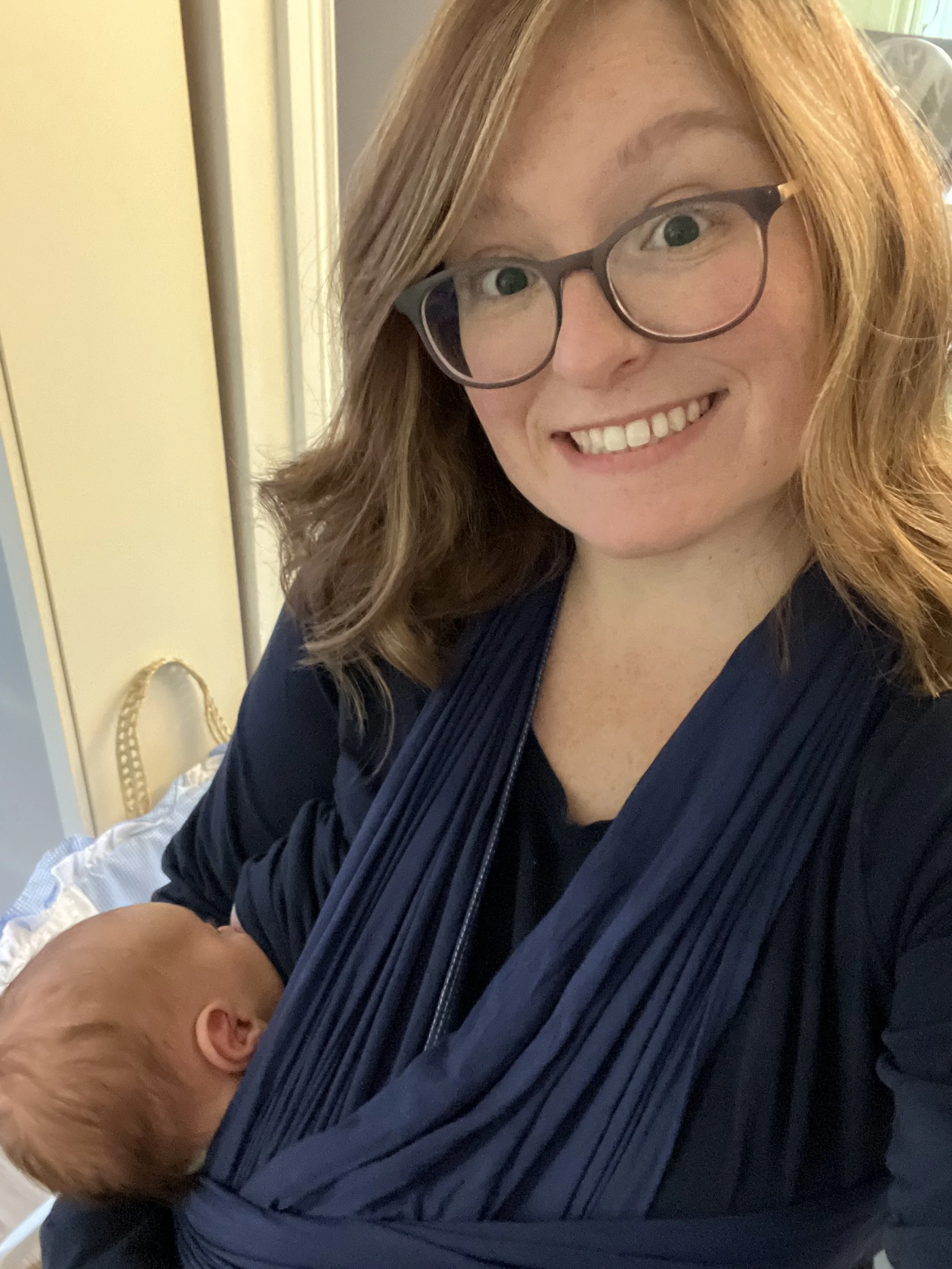How Taylor Found Healing Through Pumping
Our story this week comes from Taylor. While her breastfeeding journey came easy, she tragically lost her son to SIDS early on. Read on to find how she found comfort in a difficult time.
My breastfeeding journey has almost come to an end, for now. Though my experience didn’t look like I expected, it has been transformative. My journey began when I was around 30 weeks pregnant and started to notice colostrum. I hand expressed to save it from then until my midwife gave me the go ahead to start pumping around 35 weeks. At that point I began pumping colostrum daily until my wonderful son was born at 41+3 weeks on January 19, 2024. Pumping nightly was such a bonding experience while we waited for our little guy to arrive.
After three days of attempted induction and an unexpected C-section, I had become worried that breastfeeding would be difficult or nearly impossible because of the horror stories I had heard, but our little 6 lb 1 oz guy latched immediately and devoured every meal, dropping only 3 oz from his birth weight. In the hospital, nurses were worried about Archer’s Bilirubin levels and suggested we try supplementing with formula to bring the levels down, so that’s what we chose to do. After two feedings, we remembered all the colostrum I had saved for this very reason and my sister-in-law ran home to get it for us. Once we supplemented each feed with a few milliliters of colostrum his Bilirubin levels improved and we were finally able to bring our baby home.
I was one of the lucky ones for whom breastfeeding came easy and painless. Archie latched well and ate a lot. In his first couple weeks, we were able to master nursing in most positions, getting him up to 7 lb 11 oz at his 3 week checkup. On what ended up being Archie‘s last day with us, we even mastered nursing in his stretchy wrap, a skill we knew would be beneficial for an upcoming family vacation. I was so proud of this accomplishment that I took a photo and sent it to some friends.
On the morning of February 14, 2024 when I woke up to nurse my dear baby, I found him unresponsive in his bassinet beside our bed. After paramedics and doctors tried their best and hardest to save our son, we learned that SIDS had taken him from us after 26 days of pure perfection.
The morning our son died, I was taken into a hospital room to pump the milk that I had been ready to feed Archie when he woke up; it was my first and only experience of engorgement. I could not register the pain, however, because no physical pain could compare to the emotional pain I was experiencing. I asked if there was somewhere to donate my milk, but on that day at our local hospital, there was not, so I had to watch the milk that belonged to my precious son get dumped.
On that day, I thought my breastfeeding journey had ended and sought measures to ensure that was the case, pumping only for relief. A few days later, our midwife (a true hero in this story) shared with me some grief strategies that I hadn’t considered, and one of them was to donate to the Roger Hixon Human Milk Bank of Ontario, an organization our local hospital hadn’t been unaware of. That very day, I began the process of becoming a bereaved donor and upped my pumping routine to maintain my milk supply, which I had thankfully not yet lost. Pumping my milk, which my mother-in-law affectionately coined “Archie’s milk”, gave me a new sense of purpose, which was something I had lost with my son for a while. Pumping 2 to 3 times per day gave me a chance to reminisce, to cry and to pray. I prayed for the babies that get to benefit from my son's milk.
After three months of donating to the milk bank, my milk production began to slow down and gradually has become too little to continue donating, as the milk bank has requirements to how much you need to donate at a time. I made the decision to let it slow down, instead of trying to boost it. The same week I made this decision my good friend welcomed a sweet baby girl, a little girl who was supposed to be a best friend to my son. This little girl had the same struggle with her Bilirubin that Archer had had, and I felt nudged to offer them Archie’s milk to help flush her system. The medical team said it was the perfect thing to help and after three days, her parents were delighted to bring her home. Sharing Archie’s milk with a baby that I get to love and snuggle was so rewarding.
Knowing that so many babies struggle with Bilirubin levels prompted me to begin saving my remaining milk in 1 ounce bags for my niece who is expected to join us in just a few short weeks. As for my remaining 130 ounces of milk, I have joined “human milk 4 human babies” in our area to hopefully help others who want the best for their babies.
Although my journey hasn’t been exactly what I expected for my debut breastfeeding adventure, I am so proud of myself for exclusively breastfeeding our son for his whole life, donating in his memory and being able to help those closest to me in such an unexpected way. I do it all for Jesus and my sweet boy, Archer Pete Laman. XOXO.





